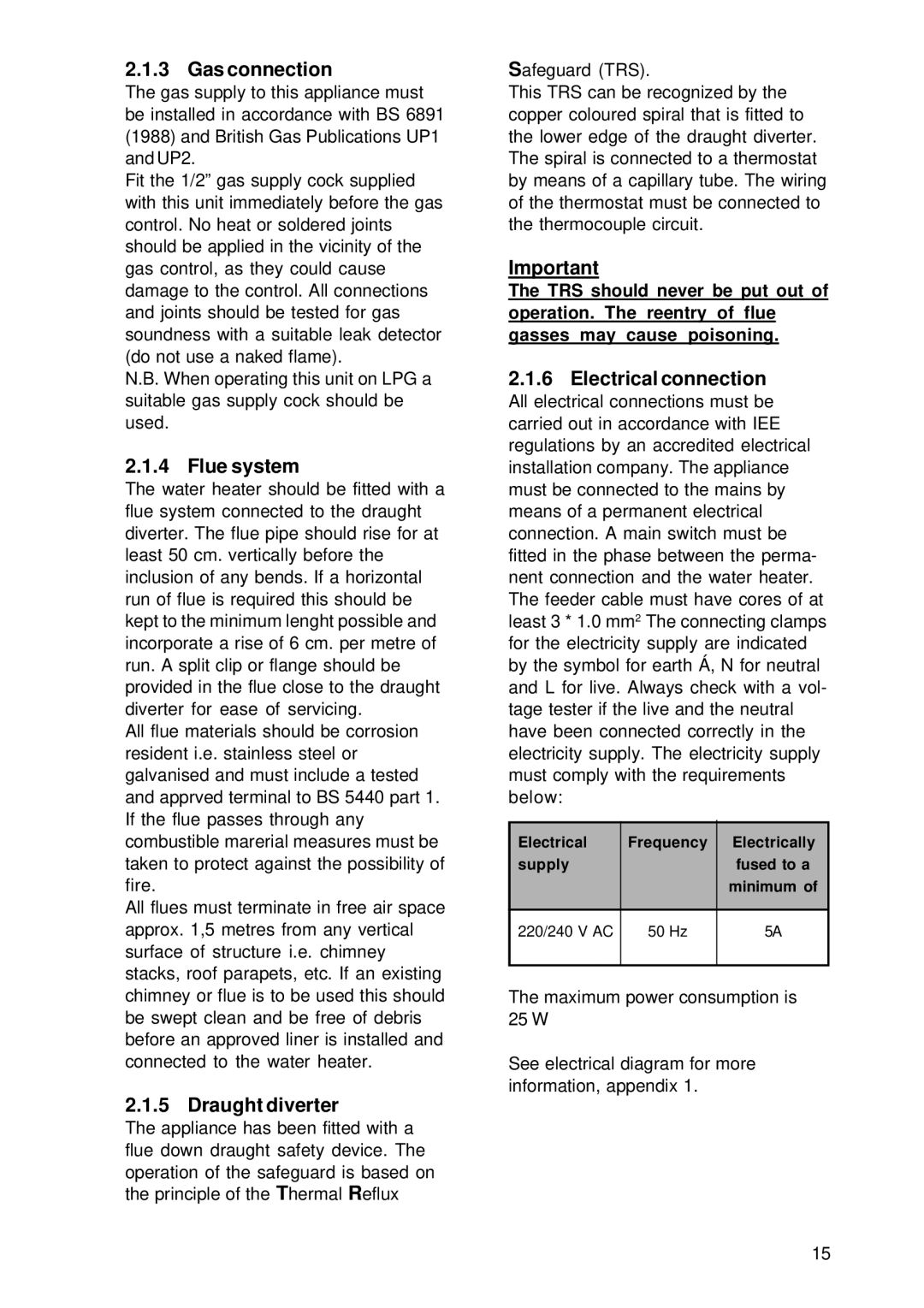
2.1.3 Gas connection
The gas supply to this appliance must be installed in accordance with BS 6891 (1988) and British Gas Publications UP1 and UP2.
Fit the 1/2” gas supply cock supplied with this unit immediately before the gas control. No heat or soldered joints should be applied in the vicinity of the gas control, as they could cause damage to the control. All connections and joints should be tested for gas soundness with a suitable leak detector (do not use a naked flame).
N.B. When operating this unit on LPG a suitable gas supply cock should be used.
2.1.4 Flue system
The water heater should be fitted with a flue system connected to the draught diverter. The flue pipe should rise for at least 50 cm. vertically before the inclusion of any bends. If a horizontal run of flue is required this should be kept to the minimum lenght possible and incorporate a rise of 6 cm. per metre of run. A split clip or flange should be provided in the flue close to the draught diverter for ease of servicing.
All flue materials should be corrosion resident i.e. stainless steel or galvanised and must include a tested and apprved terminal to BS 5440 part 1. If the flue passes through any combustible marerial measures must be taken to protect against the possibility of fire.
All flues must terminate in free air space approx. 1,5 metres from any vertical surface of structure i.e. chimney stacks, roof parapets, etc. If an existing chimney or flue is to be used this should be swept clean and be free of debris before an approved liner is installed and connected to the water heater.
2.1.5 Draught diverter
The appliance has been fitted with a flue down draught safety device. The operation of the safeguard is based on the principle of the Thermal Reflux
Safeguard (TRS).
This TRS can be recognized by the copper coloured spiral that is fitted to the lower edge of the draught diverter. The spiral is connected to a thermostat by means of a capillary tube. The wiring of the thermostat must be connected to the thermocouple circuit.
Important
The TRS should never be put out of operation. The reentry of flue gasses may cause poisoning.
2.1.6Electrical connection
All electrical connections must be carried out in accordance with IEE regulations by an accredited electrical installation company. The appliance must be connected to the mains by means of a permanent electrical connection. A main switch must be fitted in the phase between the perma- nent connection and the water heater. The feeder cable must have cores of at least 3 * 1.0 mm2 The connecting clamps for the electricity supply are indicated by the symbol for earth Á, N for neutral and L for live. Always check with a vol- tage tester if the live and the neutral have been connected correctly in the electricity supply. The electricity supply must comply with the requirements below:
Electrical | Frequency | Electrically |
supply |
| fused to a |
|
| minimum of |
|
|
|
220/240 V AC | 50 Hz | 5A |
The maximum power consumption is 25 W
See electrical diagram for more information, appendix 1.
15
